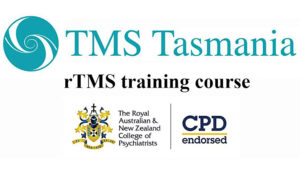Originally reported New Daily Euan Black
One in five young women in Australia is suffering from diagnosed depression or anxiety, according to new data from the University of Melbourne.
The university’s latest Household, Income and Labour Dynamics in Australia (HILDA) survey found that 20.1 per cent of women aged between 15 and 34 are suffering from diagnosed depression and anxiety, up from 12.8 per cent in 2009.
That jump equates to a 57 per cent increase in the number of young women affected by depression and anxiety, meaning the 15 to 34 bracket is now the demographic worst affected by these mental illnesses.
“It’s not that people are reporting being more depressed and anxious, it’s that there’s a rise in diagnosed mental illness, particularly pronounced in women aged between 15 and 54,” said Dr Roger Wilkins, deputy director of the HILDA survey program.
“It’s pretty alarming.”
Men have also experienced a significant increase in diagnosed depression and anxiety, with 11.1 per cent of those aged between 15 and 34 reporting depression and anxiety diagnoses in 2017, up from 6.1 per cent in 2009, and all other age brackets also reporting increases over the eight-year period.
But the most recent HILDA survey shows that rates of diagnosed depression and anxiety across all age groups were higher among women than men.
Part of that gender gap can be attributed to men’s greater reluctance to report mental health concerns, said Dr Wilkins.
And part of the overall rise can be attributed to society’s increasing willingness to come forward with problems.
But there’s also plenty of research to suggest that depression and anxiety are rising in general, and affecting young women more than men, according to Nick Duigan, senior clinical adviser at Headspace.
The national youth mental health foundation released research last year that found nearly one in three (32 per cent) young Australians was “reporting high or very high levels of psychological distress” – and that this figure was much higher among women (38 per cent) than men (26 per cent).
“There are a whole lot of reasons for that,” Mr Duigan said.
“There’s pressure on body image and self-esteem related to social media use, which is true for both males and females, but particularly among young women.
“And young women are also at greater risk of experiencing family and intimate-partner violence.”
A rise in cyberbullying and social media use was also serving to creating a world “far more complex” than that of 10 to 15 years ago, Mr Duigan said.
A fall in general health – characterised by increasing sleep deprivation, declining nutrition standards and falling activity levels – was compounding the challenges young people typically faced.
“It’s just a weird time in your life,” Grace Clarke*, who was diagnosed with anxiety and depression at 21, told the The New Daily.
“You’re drinking a lot. You don’t really know what you’re doing. You’re studying and you’re usually working some pretty pointless jobs.”
Feeling adrift and without a clear destination on the horizon, Ms Clarke said she sought help from her GP and felt better for it.
But she told The New Daily the way women were socialised to be agreeable, coupled with the major life choices they were often forced into, made navigating the terrain of early adulthood all the more challenging.
“When you’re socialised in such a way that you’re meant to be pleasing a lot of people and meant to take on a lot of care-taking roles in society, I think that does have really strong links to anxiety, because you’re constantly having to put the needs of other people above your own,” Ms Clarke said.
“Women want to be liked and to be accepted and to be nice – all those kind of things I think do contribute to a sense of social anxiety around being accepted and well perceived.“And there are lots of boxes women are meant to be ticking between 15 and 34 – things that men maybe don’t feel as much pressure to be doing.”
*Name changed



